A Tale Of Three Exterior Masonry Restorations
Words: Darcy Boyle
Words: Darcy Boyle, Media and Communications Director for PROSOCO
Photos Courtesy of PROSOCO and Apple
All across the U.S., investments are being made to restore, revitalize and retrofit existing buildings and neighborhoods. The tactics and specific solutions used to clean and rehabilitate masonry building exteriors are as varied as the buildings themselves. Here are three examples of recent exterior restorations and the expert teams that made them possible.
Carnegie Library, Washington, D.C. | Adaptive Reuse
In 2019, the Carnegie Library reopened to the public with a re-imagined design and purpose in Washington, D.C., as the Apple Carnegie Library. Originally unveiled in 1903 as a gift from Andrew Carnegie, the building features a spectacular exterior of Vermont Marble and Milford Granite and an interior with a central atrium, reading rooms, a grand staircase, and a basement with a Guastavino ceiling.
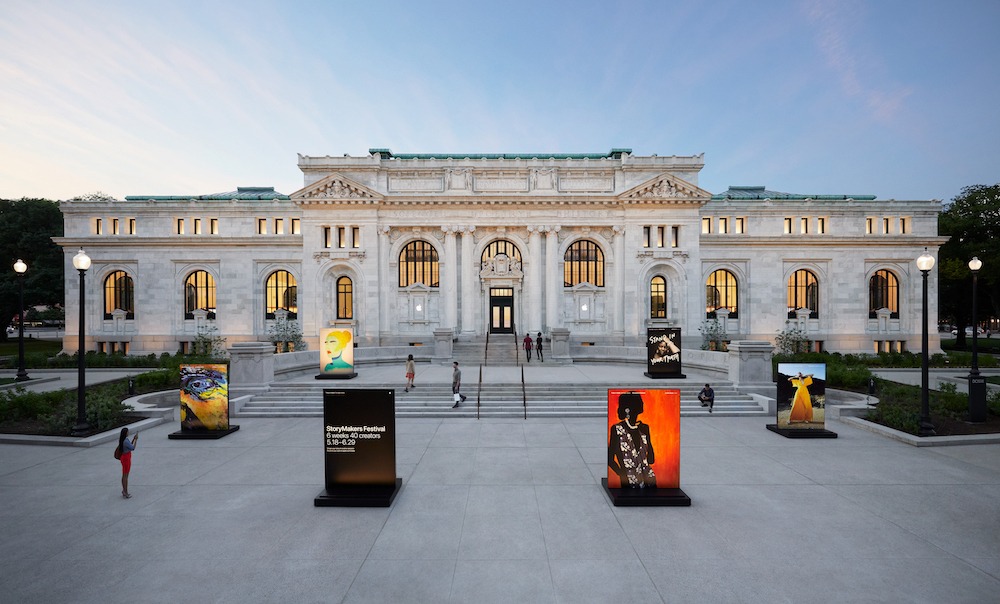
Apple worked with a design team at Beyer Blinder Belle and conservators at Grunley Construction Company, among other project team members, to tackle what it calls its “most extensive historic restoration project to date, restoring and revitalizing the Beaux-Arts style building once home to Washington, D.C.’s Central Public Library… The library will once again be a center for learning, discovery, and creativity for the community, keeping with Carnegie’s vision of a public and free space for all.”
In addition to serving as an Apple retail store, the 63,000-square-foot space also hosts free daily programs and sessions led by local artists and creators, Apple says. The library includes the new DC History Center, including three galleries, a museum store, and the Kiplinger Research Library.
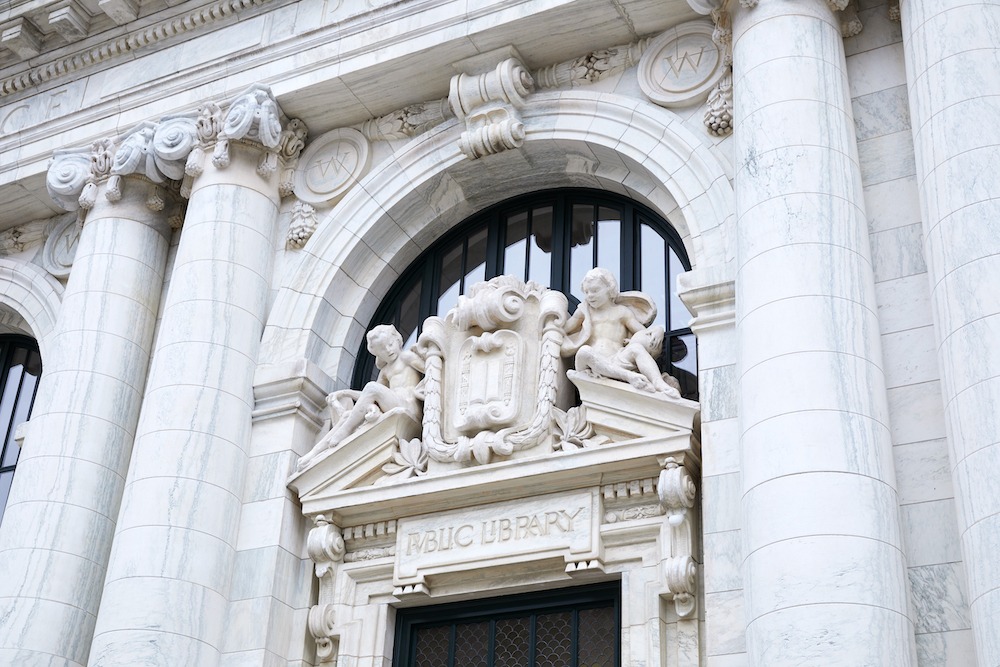
Interior and exterior surfaces were treated with measurable care in their restorations: the interior spaces were “returned to their original footprints,” and the exterior marble and granite façade, including delicate details and sculptures, were carefully preserved.
To strengthen and protect deteriorating portions of the historic building’s exterior stone, restoration professionals used HCT, a hydroxylating conversion treatment from PROSOCO that works on marbles and limestone. The two-component, waterborne treatment increases the resistance of hard surfaces to acid rain, air pollution, and the effects of normal weathering. The system can dramatically reduce the dissolution of carbonate stones in acid rain, and allows treated substrates to retain their natural water vapor permeability. HCT is also appropriate for use on dolomite and travertine.
WoodmenLife Tower, Omaha, Neb. | Restoration
The view of Omaha, Nebraska’s downtown would not be the same without WoodmenLife Tower (previously known as Woodmen Tower). This 30-story building, completed in 1969 and designed by Leo Daly, stood as the tallest building in both Omaha and Nebraska for 30+ years.
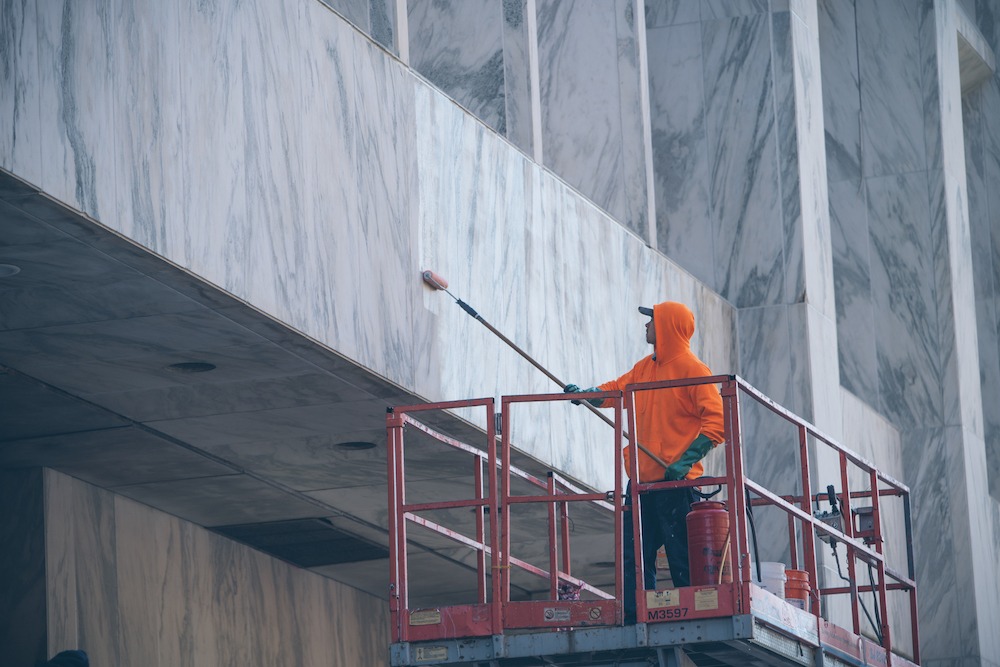
To clean the porous marble on the building’s five stories in the summer of 2020, McGill Restoration used PROSOCO’s Liquid Marble Cleaner, a cleaner that loosens and dissolves surface dirt, carbon buildup, and atmospheric stains off polished stonework and glazed masonry.
James Bouckaert, estimator and project manager for McGill Restoration, said test samples were completed on six stones before landing on Liquid Marble Cleaner. Ultimately, he was impressed with the product’s ease of application. To protect the marble and keep the building clean for years to come, crews finished the job with an application of PROSOCO’s Natural Stone Treatment.
“With all cleaning, we go from least aggressive to more aggressive,” Bouckaert said. “We reached out to our suppliers and asked them what they would use on the marble, and they recommended Liquid Marble Cleaner.”
Halle Building, Cleveland, Ohio | Adaptive reuse
Cleveland, Ohio, is setting a shining example for downtown revitalizations in the aftermath of drastic economic and industrial change.
More people are moving downtown, more money is moving downtown, businesses are filling up previously vacant office space, and developers are adapting buildings to meet new demands.
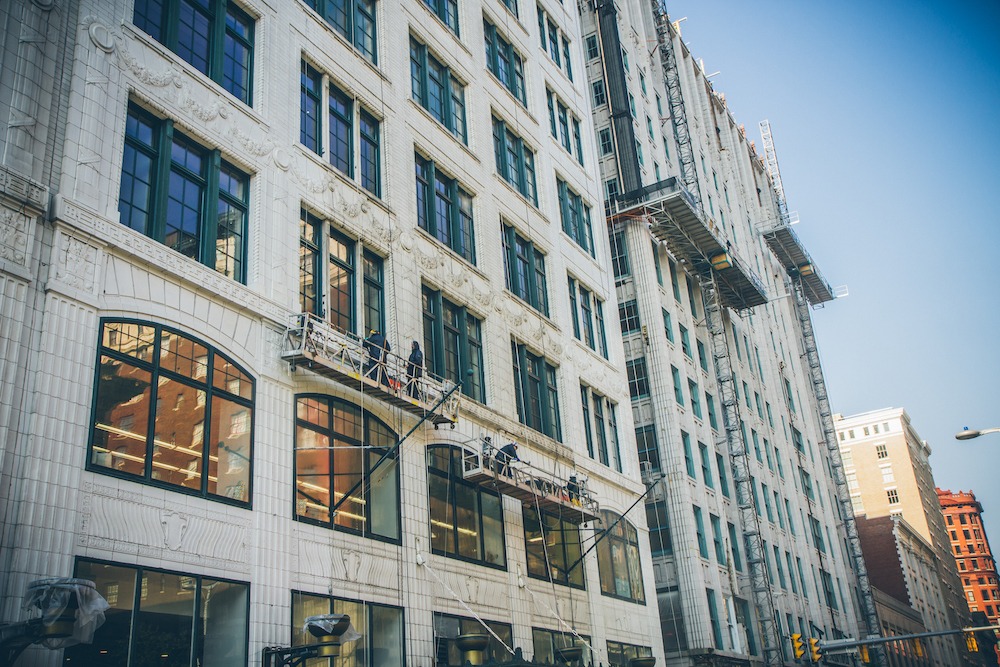
One of those buildings is the Halle Building, a former luxury department store that’s been transformed into beautiful, high-end apartments.
Adjacent to the downtown area’s Playhouse Square (the second-largest performing arts center in the nation, next only to New York City’s Lincoln Center), the Halle Building apartments opened in early 2018.
To accompany its interior renovation, an exterior cleaning was ordered to remove years of atmospheric staining from carbon emissions that had built up onto the building’s white terra cotta façade.
Around the same time that M-A Building & Maintenance got the job to clean and restore the building’s exterior in the summer of 2018, the company’s vice president, John Wamelink, learned about a new restoration cleaner with an interesting advantage.
The product, a restoration cleaner called ReVeal from PROSOCO, is formulated to clean not only multiple types of masonry and stone but also architectural metals and glass, eliminating the need to cover those other materials and substrates during the cleaning stage.
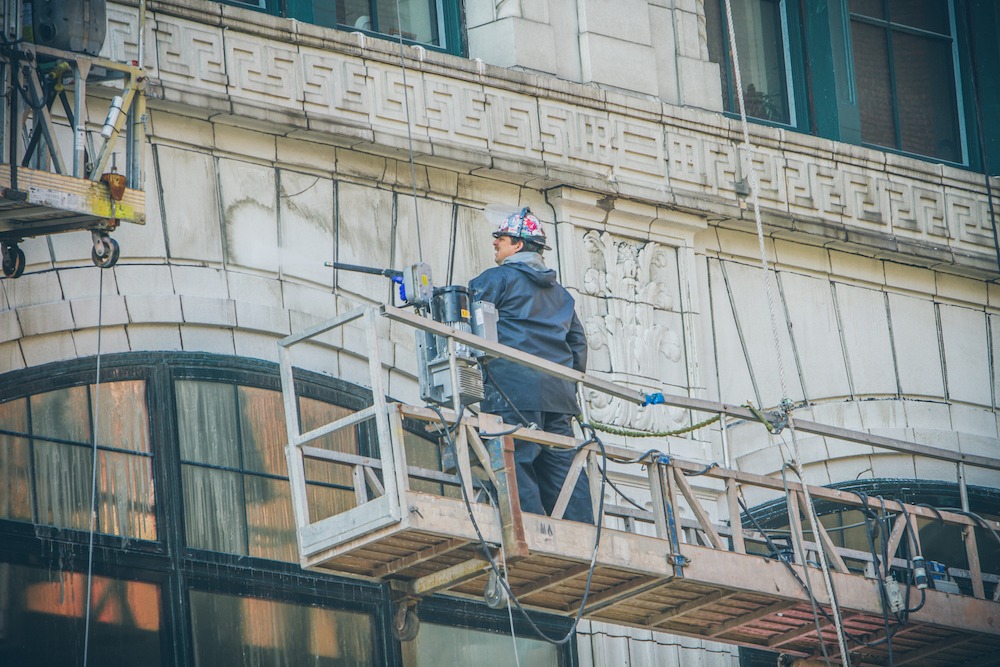
“We wanted the safest possible product and the architects like using products that aren’t high in hydrofluoric acid. So we asked for something that wasn’t going to harm windows. (ReVeal) didn’t seem to harm the windows and didn’t cause a problem with harming other surfaces,” he said.
In addition to being less corrosive than conventional restoration cleaners, ReVeal also comes in fluid form instead of a gel, enabling a shorter dwell time and easier rinsing that lets contractors finish the job faster.
Wamelink said he likes that ReVeal comes in liquid form because it can spray onto the surface. He also found that on the Halle Building, mechanically scrubbing the substrate optimized the product’s performance.
“It probably hadn’t been washed in decades,” he said. “It had a lot of atmospheric carbon on it.”